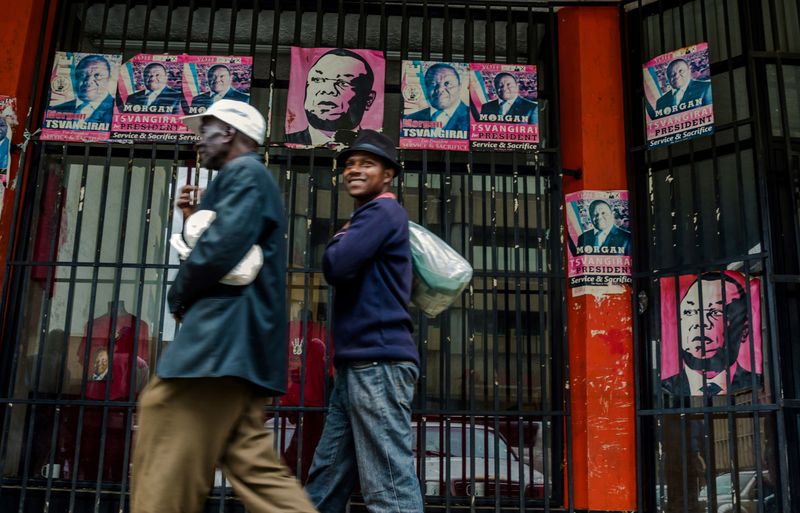
Source: AFP/Getty Images
The death of Zimbabwe’s main opposition leader Morgan Tsvangirai has left his party in disarray ahead of presidential elections later this year.
Tsvangirai, who led the main opposition Movement for Democratic Change, died Wednesday at the age of 65 from colon cancer. He had been nominated to run against President Emmerson Mnangagwa in the presidential vote expected in the first half of this year but indicated last month he was considering bowing out of the race after undergoing treatment, saying it was time to leave his party in “new hands.”
“The fear for the opposition is that his sad passing will exacerbate the ongoing leadership battle in the party, which may cause it to split or otherwise be in disarray ahead of polling,” said Derek Matyszak, senior research consultant at the South Africa-based Institute for Security Studies. The party has previously splintered with senior officials Tendai Biti and Welshman Ncube forming their own parties.
Mugabe Exit
Tsvangirai’s death comes only three months after the ousting of Robert Mugabe, who ruled Zimbabwe for 37 years until the military seized control in November 2017 and forced him to resign. Mugabe’s Zimbabwe African National Union-Patriotic Front named Mnangagwa to succeed him. A date for the presidential election hasn’t yet been announced.
Chamisa vowed to uphold Tsvangirai’s legacy at a meeting in the capital, Harare, on Thursday that drew thousands of mourners. Tsvangirai, a former union leader, was the first politician since independence in 1980 to seriously challenge Mugabe’s grip on what was a de facto one-party state by co-founding the MDC in 1999 and rallying opposition against an increasingly authoritarian regime.
“He was an unflinching fighter for a democratic system anchored on social justice, and he made a huge impact on Zimbabwe’s political landscape,” said Eldred Masunungure, a political analyst at the University of Zimbabwe. “It’s sad that he died at a time his party is tearing itself apart.”
The MDC won a majority of seats in parliament for the first time in 2008, defeating Mugabe’s Zanu-PF. Tsvangirai led the presidential ballot but withdrew from the second round of voting after about 200 opposition supporters were killed. Under a power-sharing agreement brokered by regional mediators, he then served as prime minister under Mugabe until 2013.
Incentive for Change
Tsvangirai will be remembered especially for “his readiness to stretch and reach out across the political divide” in the aftermath of the 2008 elections, Mnangagwa said in a statement Thursday.
“We all remember him for his insistence on free, fair and peaceful elections, which we must validate in the forthcoming 2018 harmonized elections in tribute to him and to our democracy,” he said in the statement.
Tsvangirai’s death should serve as an incentive for change within the MDC, said businessman Jealous Mungofa.
“They should allow a younger generation to assume control of the party,” he said. “After all, that was his wish.”

